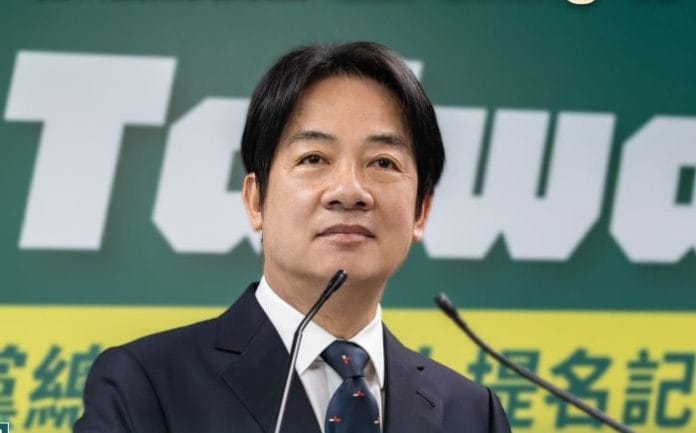Taiwan on Saturday (Jan 13) elected William Lai Ching-te of the Democratic Progressive Party (DPP) as its next president – an outcome likely to displease Beijing, in an election that has been dominated by cross-strait relations.
Vote counting is still under way, but Lai’s rivals – Mr Hou Yu-ih of the Kuomintang (KMT) and Dr Ko Wen-je of the Taiwan People’s Party (TPP) – conceded defeat at about 8pm.
As of 8.05pm, Lai had secured about 40 per cent of support, ahead of Kuomintang (LMT) rival Hou Yu-ih who bagged about 33 per cent, and Dr Ko Wen-je of the Taiwan People’s Party (TPP) with about 26 per cent, with more than 13 million votes counted, according to broadcaster TVBS.
Voter turnout from 8am to 4pm was at 69 per cent according to an earlier update by the Central Election Commission. Almost 20 million people were eligible to vote in this election.
The win marks the first time a DPP president will hand over the reins within the party. Current vice-president Lai succeeds outgoing president Tsai Ing-wen, who cannot run for re-election after serving two consecutive terms.
Lai, 64, was the frontrunner in public polls going into Saturday’s vote. The former mayor of Tainan is a noted proponent of Taiwan’s independence. His rivals and criti The DPP maintains that Taiwan is effectively independent, while China claims the island as its own. China cut off formal dialogue with Taiwan when Ms Tsai was elected in 2016.
While Lai has said he is open to resuming dialogue, this is considered unlikely to happen. Beijing regards Lai as a separatist, and has warned Taiwanese voters of the “extreme danger” he poses to triggering cross-strait conflict.
On the campaign trail, Lai and running mate Ms Hsiao Bi-khim, 52, pledged to uphold the status quo. They stressed continuity with President Tsai, who is also disliked by Beijing but has never provoked it by pushing for formal independence.
Upholding the status quo is reflective of the Taiwanese public’s wishes, analysts told CNA. Mr Lai is expected to continue President Tsai’s “relatively moderate” approach on China, but without cross-strait dialogue, the risk of misunderstanding and instability remains, they said.
Lai will be inaugurated on May 20. The period until then will be closely watched for whether Beijing dials up economic and military pressures to dissuade Mr Lai from making radical statements as his term begins.
CNA









